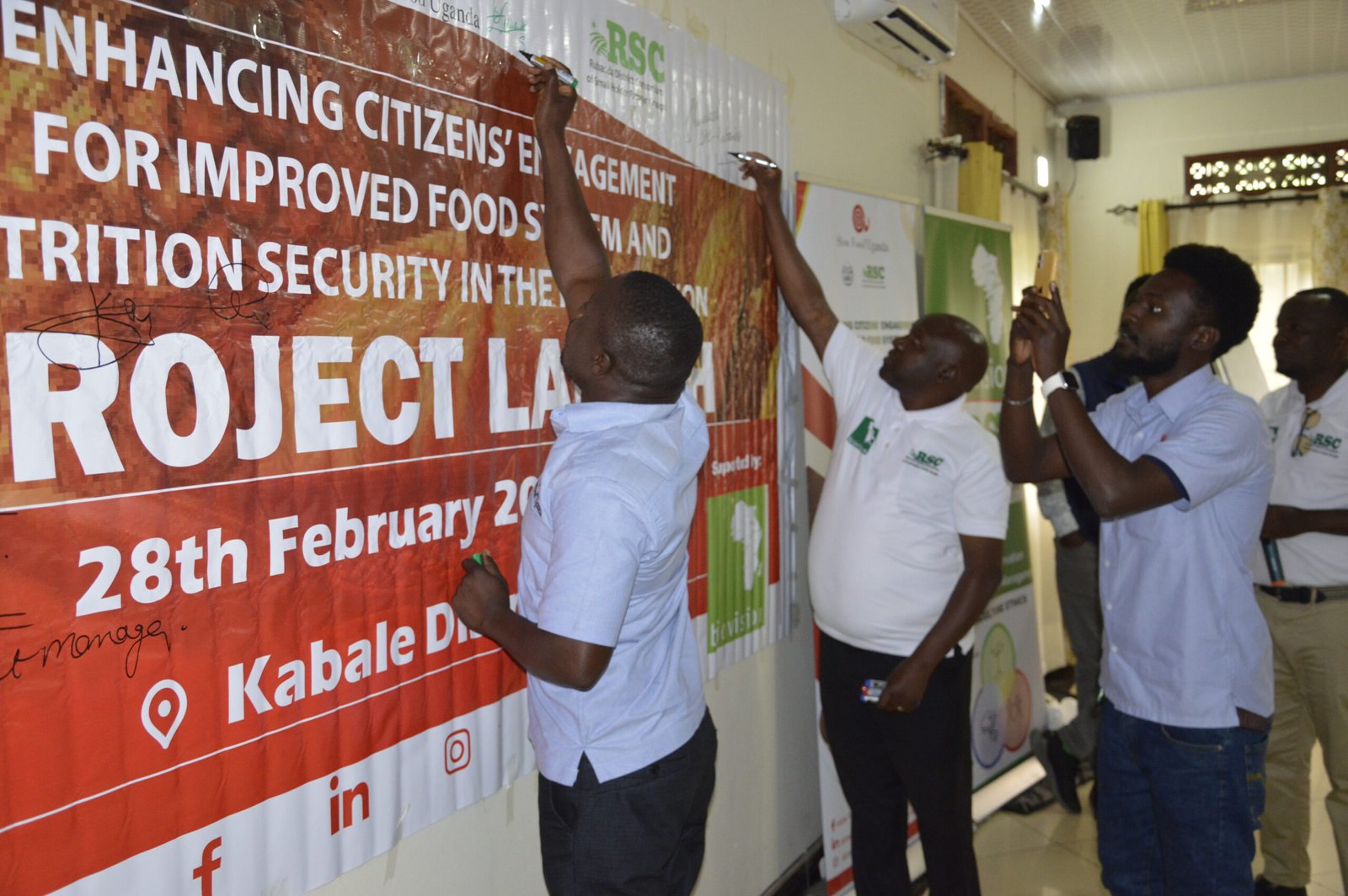Launch of the Enhancing Citizens Engagement for Improved Food System and Nutrition Security in the Kigezi Region project
Kigezi Sustainable Food Systems Consortium Launches a New Project to Enhance Citizens Engagement for Improved Food System and Nutrition Security in the Kigezi Region.
The current food system in the Kigezi region is dysfunctional, creating multiple challenges for smallholder farmers, consumers and the environment. In particular, it fails to (1) provide adequate dietary diversity, (2) sustainability and reliable market access for agroecologically produced food, and (3) is not resilient to climate change and economic disruption.
Three organizations i.e., Slow Food Uganda (SFU), Kabale Municipality Development Foundation (KMDF), and the Consortium of Rubanda Smallholder Farmer Groups (RSC) have come together to form the Kigezi Sustainable Food System Consortium. The Consortium seeks to address the identified shortcomings of the current food system by building a sustainable food system based on agroecological principles and to improve food and nutritional security, promoting sustainable consumption and enhancing the overall resilience of food systems, particularly to climate change in the Kigezi region. Through this, the consortium launched the “Enhancing Citizens Engagement for Improved Food system and Nutrition Security in the Kigezi Region” project. On February 28, 2024, an inauguration ceremony was held in Kabale, South Western Uganda, to commemorate the launch of the project. The project will be implemented in three districts of Kabale, Rubanda and Rukiga for 3 years from 2024 to 2026.
Specifically, the project aims to enrich production with plants that contribute to greater nutritional diversity in the Kigezi region, to enhance agroecological practices that can contribute to greater resilience in food production to food insecurity and climate change, and to reshape existing food consumption narrative to create greater awareness of the benefits of agroecologically produced foods and thus strengthen agroecological markets.
The project aligns with the national efforts of increasing nutrition diversity by providing smallholder farmers in the Kigezi region with the necessary support and resources to produce a diverse range of agroecologically grown crops and animal products. The project is in line with the Uganda Nutritional Action Plan (UNAP) which aims to reduce malnutrition by promoting dietary diversity and ensuring that people have access to a variety of safe and nutritious foods. The project also aligns with the National Development Plan Three (NDP III) which sets out to increase agricultural productivity and improve food security in Uganda.
The inauguration ceremony of the project was attended by the Mayor of Rubanda Town Council Hon. Tumushabe Norman, who was also the chief guest; teachers, agricultural officers, youth representatives, local government representatives, students, media personalities, CSO representatives, Farmer representatives among others. All the participants expressed their enthusiasm and high expectations for the project. They expressed their sincere optimism that the project will significantly benefit the people of the Kigezi region, especially the smallholder farmers, youths, consumers, and food vendors. They also reaffirmed their dedication to collaborating towards realizing the project’s goals and objectives, ensuring the effective implementation of its outcomes in the society.
The project is supported by Biovision Foundation for Ecological Development
















